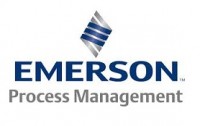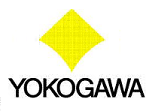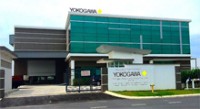 BP has awarded Emerson Process Management, a global business of Emerson (NYSE: EMR), a contract in excess of US$40 million to be the Main Automation Contractor for the Shah Deniz Stage 2 development project in the Azerbaijan sector of the Caspian Sea. Emerson will provide integrated control and safety systems to help ensure safe and efficient control of gas production on two new offshore platforms and at an expanded onshore gas processing plant at the Sangachal terminal.
BP has awarded Emerson Process Management, a global business of Emerson (NYSE: EMR), a contract in excess of US$40 million to be the Main Automation Contractor for the Shah Deniz Stage 2 development project in the Azerbaijan sector of the Caspian Sea. Emerson will provide integrated control and safety systems to help ensure safe and efficient control of gas production on two new offshore platforms and at an expanded onshore gas processing plant at the Sangachal terminal.
The contract is part of Emerson’s global agreement with BP to provide services for greenfield automation projects. Selecting Emerson as the Main Automation Contractor helps BP simplify procurement and project execution. In this role, Emerson will provide system engineering, installation, configuration and testing, supported locally by the Emerson Azerbaijan service center in Baku.
“This contract is a testament to Emerson’s experience in deepwater offshore oil and gas applications and to the quality of our work providing similar technology for BP’s nearby Chirag Oil Project,” said Steve Sonnenberg, president, Emerson Process Management. “This latest large-scale project continues the long-standing and trusting relationship that exists between our companies.”
Emerson is also providing automation technology and services for BP projects west of Shetland in the UK, including two offshore platforms in the Clair Ridge field and a floating production, storage, and offloading (FPSO) vessel for the Quad 204 development.
As part of the integrated front-end engineering and design team for Shah Deniz Stage 2, Emerson worked closely with BP and its engineering contractor to define the digital automation solution. The integrated Emerson solution will use Emerson’s DeltaV™ distributed control system, DeltaV SIS™ process safety system, and AMS Suite predictive maintenance software.
The DeltaV system will control and monitor onshore, topside and subsea operations. The DeltaV SIS system will perform process and emergency shutdown functions, if needed, plus control the fire and gas detection systems to enable secure gas production. Electronic Marshalling with intrinsically safe CHARMs technology will help reduce the complexity of connecting the automation systems with thousands of control and measurement devices.
In addition, Emerson’s AMS Suite software will deliver predictive diagnostics from the control and measurement devices to enable timely corrective maintenance. Diagnostic data will be integrated with similar information from BP’s Chirag project to present a clear picture of overall asset health and performance of BPs operations in the Caspian Sea.
Air Jordan III 3 Shoes
 Saipem, through its subsidiary ERSAI Caspian Contractor LLC, has been recently awarded a major new Engineering & Construction contract for the Kashagan field project, located in the Kazakh waters of the Caspian Sea, valued at approximately $1.8 billion.
Saipem, through its subsidiary ERSAI Caspian Contractor LLC, has been recently awarded a major new Engineering & Construction contract for the Kashagan field project, located in the Kazakh waters of the Caspian Sea, valued at approximately $1.8 billion.
 Yokogawa Electric Corporation announces that its subsidiary, Yokogawa Engineering Asia, has received an order from Toshiba Plant Systems & Services Corporation to deliver control systems for the Thai Binh coal-fired thermal power plant in Vietnam. Toshiba Plant Systems & Services will be responsible for installing the electrical and other facilities at this power plant.
Yokogawa Electric Corporation announces that its subsidiary, Yokogawa Engineering Asia, has received an order from Toshiba Plant Systems & Services Corporation to deliver control systems for the Thai Binh coal-fired thermal power plant in Vietnam. Toshiba Plant Systems & Services will be responsible for installing the electrical and other facilities at this power plant. Yokogawa Electric Corporation announces the establishment of Yokogawa Analytical Solutions in Malaysia. This new subsidiary, whose opening ceremony was held on December 3, will manufacture process analyzer systems for use in oil refineries, petrochemical plants, and other industrial facilities. It is expected that the new company will play a role in expanding Yokogawa's process analyzer systems business.
Yokogawa Electric Corporation announces the establishment of Yokogawa Analytical Solutions in Malaysia. This new subsidiary, whose opening ceremony was held on December 3, will manufacture process analyzer systems for use in oil refineries, petrochemical plants, and other industrial facilities. It is expected that the new company will play a role in expanding Yokogawa's process analyzer systems business. BP has awarded Emerson Process Management, a global business of Emerson (NYSE: EMR), a contract in excess of US$40 million to be the Main Automation Contractor for the Shah Deniz Stage 2 development project in the Azerbaijan sector of the Caspian Sea. Emerson will provide integrated control and safety systems to help ensure safe and efficient control of gas production on two new offshore platforms and at an expanded onshore gas processing plant at the Sangachal terminal.
BP has awarded Emerson Process Management, a global business of Emerson (NYSE: EMR), a contract in excess of US$40 million to be the Main Automation Contractor for the Shah Deniz Stage 2 development project in the Azerbaijan sector of the Caspian Sea. Emerson will provide integrated control and safety systems to help ensure safe and efficient control of gas production on two new offshore platforms and at an expanded onshore gas processing plant at the Sangachal terminal.